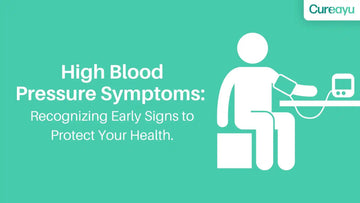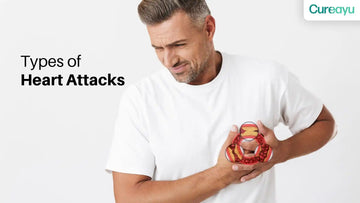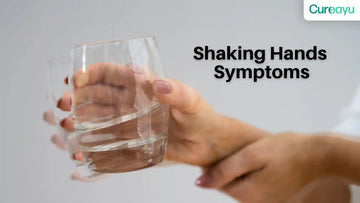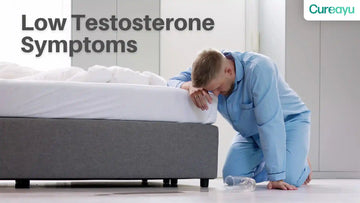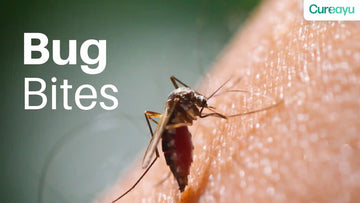High blood pressure, or hypertension, is a prevalent health issue affecting millions worldwide. Often called the "silent killer," it usually shows no symptoms until significant damage has occurred, leading to serious conditions like heart disease, stroke, and kidney failure. Understanding and recognizing the symptoms of high blood pressure is crucial for early detection and management. This blog aims to shed light on the symptoms of high blood pressure, its causes, risks, and home remedies to maintain normal blood pressure, emphasizing the importance of proactive health management.
What Is Blood Pressure?
Blood pressure is the force exerted by circulating blood on the walls of the body's arteries, the major blood vessels in the circulatory system. It is measured in millimeters of mercury (mm Hg) and recorded with two numbers: systolic pressure (the pressure in your arteries when your heart beats) over diastolic pressure (the pressure in your arteries when your heart rests between beats). Maintaining normal blood pressure is essential for ensuring that all tissues and organs receive adequate blood supply for proper functioning.
High BP Range
A normal blood pressure reading is typically around 120/80 mm Hg. When blood pressure consistently exceeds 130/80 mm Hg, it is considered high. Hypertension is classified into two stages: Stage 1 (systolic between 130-139 mm Hg or diastolic between 80-89 mm Hg) and Stage 2 (systolic 140 mm Hg or higher or diastolic 90 mm Hg or higher). Accurate measurement and regular monitoring are vital for diagnosing and managing high blood pressure effectively.
High Blood Pressure Symptoms
- Headaches: Persistent headaches, especially at the back of the head, can be an early sign of hypertension. These headaches are usually more intense in the morning.
- Dizziness: Frequent episodes of dizziness or lightheadedness can indicate high blood pressure, particularly when standing up quickly from a seated or lying position.
- Blurred Vision: High blood pressure can cause changes in vision, including blurriness and seeing spots or floaters. This is due to the effect of elevated pressure on the blood vessels in the eyes.
- Nosebleeds: While not common, recurrent nosebleeds can be a symptom of extremely high blood pressure. This happens because the blood vessels in the nose become fragile and rupture easily.
- Shortness of Breath: Experiencing difficulty breathing or shortness of breath, especially during physical activity, may be a sign that high blood pressure is affecting your heart and lungs.
- Chest Pain: Although less common, chest pain can occur if high blood pressure strains the heart and arteries. This can feel like tightness, pressure, or squeezing in the chest.
- Fatigue: Feeling unusually tired or weak without a clear reason can be a subtle sign of high blood pressure. This symptom occurs because your heart has to work harder to pump blood against higher pressure.
What Causes High Blood Pressure
- Genetics: A family history of hypertension increases your risk. Genetic predisposition can influence how your body regulates blood pressure.
- Poor Diet: Consuming a diet high in salt, fat, and cholesterol can lead to high blood pressure. Processed foods and lack of fruits and vegetables are major contributors.
- Lack of Physical Activity: Sedentary lifestyle habits can increase your risk of hypertension. Regular exercise helps maintain healthy blood pressure levels.
- Obesity: Excess weight forces your heart to work harder, increasing the pressure on your arteries. This is a significant risk factor for high blood pressure.
- Smoking: Tobacco use raises blood pressure and damages the arterial walls, contributing to the development of hypertension.
- Excessive Alcohol Consumption: Drinking too much alcohol can raise blood pressure and add extra calories, leading to weight gain and increased hypertension risk.
- Stress: Chronic stress can contribute to temporary increases in blood pressure and may lead to long-term hypertension if not managed effectively.
Risks Involved with High Blood Pressure
- Heart Disease: High blood pressure can cause heart disease by damaging the arteries, leading to heart attacks or heart failure.
- Stroke: Hypertension can cause blood vessels in the brain to burst or become blocked, leading to a stroke, a serious and potentially fatal condition.
- Kidney Damage: High blood pressure can damage the blood vessels in the kidneys, leading to kidney disease or failure over time.
- Vision Loss: Hypertension can damage the blood vessels in the eyes, leading to retinopathy and potential vision loss if untreated.
- Aneurysm: Persistent high blood pressure can cause the arteries to weaken and bulge, forming an aneurysm. This can be life-threatening if the aneurysm ruptures.
- Cognitive Decline: High blood pressure can affect blood flow to the brain, potentially leading to cognitive impairment and an increased risk of dementia.
- Peripheral Artery Disease: Hypertension can narrow the blood vessels in the legs, arms, stomach, and head, leading to pain and muscle cramps.
Home Remedies to Keep Blood Pressure in Normal Range
- Dietary Changes: Adopt a diet rich in fruits, vegetables, whole grains, and lean proteins. The DASH (Dietary Approaches to Stop Hypertension) diet is particularly effective.
- Regular Exercise: Engage in at least 150 minutes of moderate exercise per week. Activities like walking, jogging, swimming, and cycling can help lower blood pressure.
- Reduce Salt Intake: Limit sodium intake to less than 2,300 mg per day. Reducing salt in your diet can significantly lower blood pressure.
- Maintain a Healthy Weight: Achieving and maintaining a healthy weight can help control blood pressure. Even a small amount of weight loss can make a big difference.
- Limit Alcohol Consumption: Drink alcohol in moderation, if at all. Limiting alcohol intake can help lower blood pressure and reduce the risk of hypertension.
- Quit Smoking: Stopping smoking improves overall health and lowers blood pressure. Seek support and use smoking cessation aids if needed.
- Stress Management: Practice stress-reducing techniques such as meditation, yoga, deep breathing exercises, and maintaining a healthy work-life balance.
Conclusion
High blood pressure is a serious health condition that often goes unnoticed until it causes significant harm. Recognizing the symptoms, understanding the causes, and being aware of the risks associated with hypertension are crucial steps toward managing this silent killer. By incorporating healthy lifestyle changes and regular monitoring, you can maintain your blood pressure within a normal range and reduce the risk of serious health complications. If you suspect you have high blood pressure, consult a healthcare professional for proper diagnosis and treatment. Remember, proactive health management is key to a healthier and longer life.

